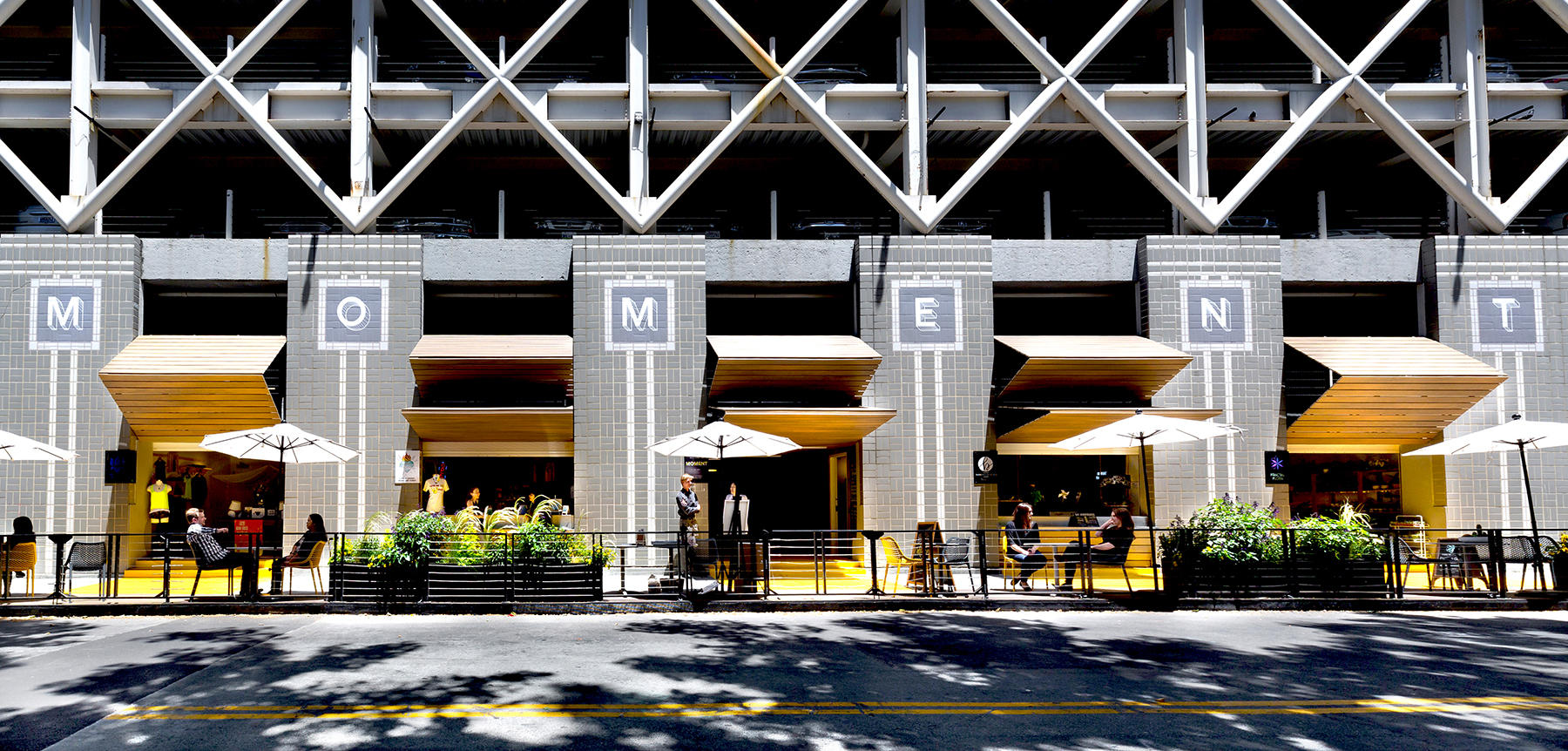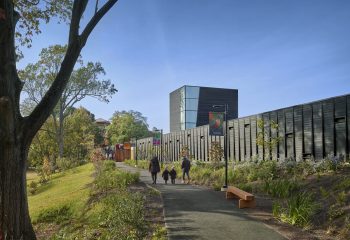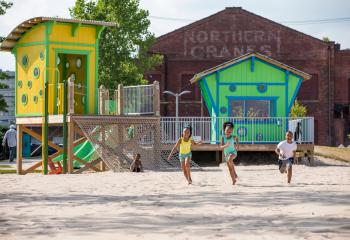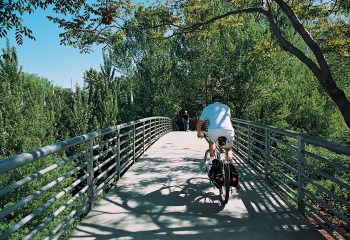
Studying Innovation in San Jose: The MOMENT Project
In 2015, Knight Foundation awarded a grant to the San Jose Downtown Association (SJDA) to study and implement options to transform the ground floor of the San Pedro Square parking garage into a vibrant retail incubator. Like many parking structures, the San Pedro Square garage interrupted the streetscape’s flow and rendered the east side of the street lifeless. This was during a time when the San Pedro Square Market was itself beginning to bustle. The SJDA wanted to explore two innovations:
- Could small, supported retail spaces with direct street access attract new entrepreneurs and help establish them in San Jose’s downtown?
- Could ground-floor garage parking spaces be converted to micro-retail stores that would be affordable for entrepreneurs and create a vibrant streetscape?
The MOMENT Project was born. It was conceived as four small retail spaces where entrepreneurs could launch a small business. It was created by removing parking spaces on the ground floor of a downtown parking garage and converting them to storefronts. Once opened, MOMENT provided an immediate boost to the vibrancy of San Pedro Square.
Fast forward to 2021. San Jose is moving through one of its greatest disruptions to downtown life since the 1989 Loma Prieta Earthquake. It’s a time when the threats to peoples’ health and livelihoods are real and public spaces have emerged as places to recharge, connect and enjoy food. In the case of San Pedro Square, one might say that outdoor dining for downtown residents has helped keep restaurants and businesses on life support while people who normally worked and attended events nearby stayed away.
During fall of 2020, Knight and Gehl studied MOMENT and six other public space projects in Philadelphia, Detroit and Akron to identify what made them successful and offer recommendations for building resilient and inclusive cities. Knight launched the study because we are an opportunistic social investor; we seek innovative and sustainable opportunities that align with our strategies. As such, Knight is constantly seeking to understand the success and failure of our investments, and honoring both.
MOMENT proved that micro-retail could work in San Jose, which is important as the city revitalizes the SoFA District and Google plans to build a nearby campus. By placing this project adjacent to San Pedro Square and the downtown Farmers’ Market, MOMENT was able to capitalize on the traffic generated by both, while becoming a draw in its own right.
However, MOMENT showed that its success was location dependent and that such a project wouldn’t necessarily work everywhere because micro-retailing needed to compliment the primary use of a commercial area. Site limitations at MOMENT and low sales volumes meant that retailers often operated as sole proprietors without staff, and they often couldn’t keep operating hours to capture foot traffic from the busiest periods at San Pedro Square Market. Early on in the project, downtown residential density was lower, so that retail sales were dependent on whether customers—whose original destination was San Pedro Square—were willing to carry their purchases with them to work, an event, or out to dinner. With increasing residential density, this concern is becoming mitigated as residents who live nearby are now becoming customers turning MOMENT into a primary destination.
During the pandemic, San Pedro Street has been partially closed to traffic. This has improved the viability of nearby restaurants and has improved MOMENT’s visibility and usability. For example, MOMENT businesses have been able to conduct outdoor workshops.
The MOMENT Project illustrated that retrofitting urban spaces for micro-retail would be cost-prohibitive without philanthropic support because converting parts of existing structures into micro-retailing sites is more expensive than building new sites.
But MOMENT also highlights the importance of micro-retailing as a vehicle to establish financial security for entrepreneurs. The collaborative spirit of the project and the commitment from the City of San Jose and SJDA to keep rents low has helped ensure MOMENT’s financial viability. As long as tenants can make short-terms leases work, MOMENT offers a much lower barrier-to-entry than would be faced at a mainstream storefront. This lets entrepreneurs experiment with the retail business model and find a mix that works before expanding.
As the community re-imagines the SoFA District, there’s a lot to be learned from the innovation at MOMENT—and from the six other public space projects across the U.S surveyed in the Knight report—all of which can be read about here. Later in April, the SJDA and Gehl will discuss the MOMENT Project in more detail during a community meeting; you can watch the events feed at sjdowntown.com for updates.
Chris Thompson is Knight Foundation’s program director for San Jose. Follow him on Twitter @Thompson_KF.
Image (top) by the San Jose Downtown Association.
Recent Content
-
Community Impactarticle ·
-
Community Impactarticle ·
-
Community Impactarticle ·





